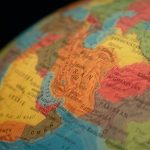Kim Jong-un seeks recognition, not compromise; Trump wants headlines, not hard deals. Without major concessions, another meeting may happen, but real progress remains unlikely amid mistrust and shifting priorities.
When will President Donald Trump and Kim Jong-un head back to the negotiating table?
This is a frustrating time for the North Korean dictator, his country is an afterthought in the geopolitical order and he recently endured an embarrassing incident when one of his new warships capsized into the sea during a christening ceremony. Kim called it a “criminal event,” and the world greeted the incident with glee.
Trump is busy with the Israeli-Iranian conflict, the never-ending war in Ukraine, and the ever-present threat from China.
However, there is a chance the two mercurial leaders could meet later this year. Trump famously joined Kim for historic talks in 2019 after the American president claimed he stopped a war on the peninsula in 2017.
Despite such a historic interaction, the United States has not changed its stance on complete denuclearization on the peninsula. Meanwhile, Kim considers his country to be an unassailable nuclear power that leads the world in atomic weapons delivery.
Trump met with Japanese Prime Minister Shigeru Ishiba on February 7 in Washington DC “We will have relations with North Korea and Kim Jong-un,” Trump said at a joint news conference.
What Will Kim Jong-un Gain from Seeing Trump Again?
Kim does not have much reason to extend the olive branch. He is happy to go his own way and continue to improve his country’s nuclear capability with no obstruction from South Korea or the West. Kim is looking for significant concessions, and the United States is not likely to yield, especially under a Trump administration.
Therefore, Kim will probably not “blink” anytime soon and give Trump the satisfaction of reaching a mutual consensus on the nuclear question.
What Are American Experts Saying About the Trump-Kim Relationship?
Army Special Forces Colonel David Maxwell, the vice president of the Center for Asia Pacific Strategy, highlights what many Americans don’t seems to understand about the Kim regime, “Kim Jong-un is conducting political warfare to subvert South Korea and drive a wedge in the ROK-US alliance. He must destroy the alliance to drive US forces off the peninsula, as this is the necessary condition for domination of the peninsula. He is conducting blackmail diplomacy, which can be described as using increased tension, threats, and provocations to achieve political and economic concessions to support the regime. He is also acquiring advanced military capabilities to support political warfare and blackmail diplomacy, and obtain the ability to dominate the peninsula by force when the conditions are right.”
With this in mind, it will be difficult for Trump to score another breakthrough.
The White House has not articulated a clear policy for North Korea for Trump’s second presidential term. Maxwell further writes, “In this second term, President Trump could implement new policy and strategy elements that had never been attempted. These include a human rights upfront approach that keeps human rights on all agendas, a sophisticated and holistic information campaign, and support for the Korean people’s pursuit of a free and unified Korea.”
Said policies to foster a more “comfortable” relationship could be reducing the number of US troops in South Korea. The Wall Street Journal reported that 4,500 American soldiers would be redeployed from the Republic of Korea to Guam and other locations. While Pentagon sources refute that the plan has any validity, it likely remains a real policy option at the White House.
This wouldn’t be a good idea unless it includes North Korean concessions. For example, if the United States reduced its forces in the South, Kim could allow inspections of his nuclear infrastructure. That’s just a hypothetical and not likely to work, but Trump should make the North agree to concessions before he reduces troop levels in the South by attaching strings to such a move.
Another gambit that Trump could try would be to cancel combined military exercises between the US Army and South Korean personnel. Kim hates these drills and always claims they are a rehearsal for a joint US and ROK attack on the North. This should only be done if Kim made some improvements to his country, too, perhaps regarding human rights.
How Should Trump Approach North Korea?
Maxwell calls for “strategic strangulation” of the North. This would entail the United States and its allies pursuing a policy of “well-executed use of sanctions and all instruments of national power to prevent weapons proliferation, cyber-attacks, and global illicit activities [that] support the regime,” he said.
This is a tall order, and Trump is not likely ready to make such a comprehensive deal that would de-nuclearize the peninsula. There could be movement with US reductions in force and the cancellation of military exercises. Still, Kim is not likely to reciprocate by allowing the West to examine his nuclear weapons.
So, we are back to where we started: Trump wants diplomatic relations, but not to offer the kind of “carrots” that would encourage North Korea to change its behavior and Kim thinks he commands a state that should be respected as a legitimate nuclear power.
Expect no changes in this outlook. Trump may have another meeting with Kim, but diplomatic breakthroughs need huge concessions from both sides, a significant level of deal-making that may not be possible soon.
About the Author: Dr. Brent M. Eastwood
Brent M. Eastwood, PhD, is the author of Don’t Turn Your Back On the World: A Conservative Foreign Policy and Humans, Machines, and Data: Future Trends in Warfare, plus two other books. Brent was the founder and CEO of a tech firm that predicted world events using artificial intelligence. He served as a legislative fellow for US Senator Tim Scott and advised the senator on defense and foreign policy issues. He has taught at American, George Washington, and George Mason University. Brent is a former US Army Infantry officer. He can be followed on X @BMEastwood.
Image Credit: Shutterstock/Rawpixel.com.

















